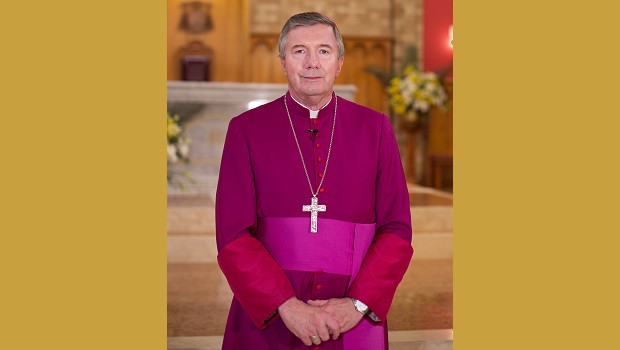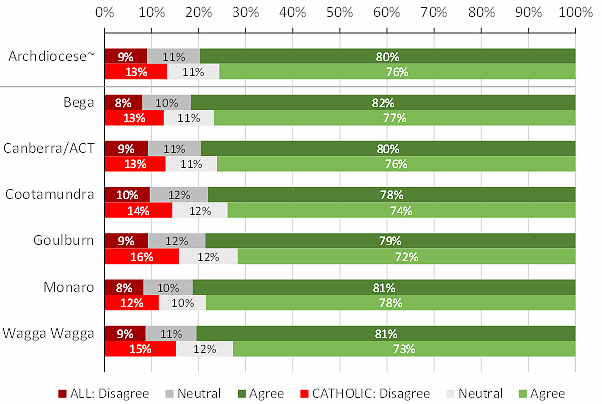Canberra Times preferences misinformation

Last month, the Catholic Archbishop of Canberra & Goulburn, Christopher Prowse, published an opinion piece about VAD in the Canberra Times. Naturally, Prowse's views were opposed, which is fine. A range of views is always welcome. Misinformation, however, is not.
It would be unreasonable to expect that the opinion editor of the Canberra Times, Andrew Thorpe, would be intimately versed in the empirical evidence about voluntary assisted dying (VAD). So, it was reasonable that he publish an opinion piece on the topic offered by Archbishop Prowse. What is not reasonable, however, is that the counter-opinion I promptly submitted, pointing out several points of significant misinformation, was not published. A month later, still nothing.
A critical feature of high-quality, mainstream media journalism (which includes editorialism) is to ensure that the public can be exposed to a range of views on important topics, and that those views are generally devoid of significant misinformation. I argue that the Canberra Times has profoundly failed in this instance, and could profitably reflect on improving its conduct.
Here's the op-ed I sent, which they failed to publish.
Archbishop Prowse sadly misinformed on assisted dying
Catholic Archbishop Christopher Prowse’s recent editorial against voluntary assisted dying (VAD) (Canberra Times, 11 Aug) contains numerous items of misinformation about the practice. While a range of views is welcome, misinformation is not an acceptable standard in public debate about such an important topic.
Unsurprisingly, Archbishop Prowse argues that more palliative care is “the answer” to end-of-life suffering. This ignores formal statements by both Palliative Care Australia and the Australian and New Zealand Society for Palliative Medicine acknowledging that even the best palliative care can’t address all extreme suffering. It’s not like he wouldn’t know: the Catholic church is the largest single institutional provider of palliative care services in the nation.
His editorial also paints VAD deaths as “fearful”, “depressed” and “lonely”. This not only contradicts evidence published in peer-reviewed scientific research and official reports from lawful jurisdictions, but is a slap in the face to those who have chosen a VAD death, and to their families.
For example, the second person to use WA’s VAD law was Mary-Ellen Passmore. Her family and friends gathered to say farewell and sang Hallelujah together during her final moments. Loved ones of those who have accessed VAD in Victoria have described the experience as “peaceful” and “beautiful”.
Ms Passmore was also an indigenous community leader. This is relevant because Prowse argues that indigenous Australians would be fearful of VAD law, avoiding needed medical services.
This old chestnut has been rattling around since the Northern Territory VAD days in the 1990s, but was dismissed as false after a formal investigation found no change in indigenous medical service attendance. Indeed, a parliamentary inquiry heard that it was church members [not referring to Prouse or his diocesan colleagues] who were causing any indigenous fears.
Prowse also enlists “elder abuse” into his supposed army of the “vulnerable”. But a key feature of elder abuse is that it’s commissioned in secret, while VAD has numerous points of assessment, referral, review and documentation by trained professionals.
Perhaps the most egregious misrepresentation is his claim that “reasons for euthanasia quickly expand once legalised”, levelling specific claims about the Netherlands.
In fact, the Netherlands made VAD lawful by regulation in the mid-1980s. Several test cases in following years clarified that certain conditions (like extreme and unrelievable mental suffering) qualified under the regulations. These were formalised (not changed) in legislation in 2001. And that legislation hasn’t changed since. Not. One. Word.
One could be forgiven for thinking that the archbishop represents the views of Catholic Australians. But this isn’t true either. ANU studies show that some three quarters of Catholic Australians support lawful VAD.
I analysed the major 2019 data set of VoxPop — the academics who run VoteCompass — about VAD attitudes in the archbishop’s own archdiocese. It comprises the ACT and the NSW electorates of Bega, Cootamundra, Goulburn, Monaro, and about a third of Wagga Wagga.
With a VoxPop respondent count across the archdiocese of more than 34,000 people, four out of five voters favour lawful VAD with just 9% opposed. Not only that, but more than three out of four Catholic voters (76%) in the archdiocese favour lawful VAD, with just 13% opposed.

Voter attitudes toward VAD in the Canberra-Goulburn Catholic Archdiocese
Source: VoteCompass/VoxPop 2019.
~ Archdiocese totals weighted by elector count per district, Wagga Wagga weighted as 1/3 of.
Thus, not only does Archbishop Prowse seem unfamiliar with VAD facts, he seems remarkably unacquainted with the real views of his own flock.
Prowse argues that we are all “made in the image of God so we have dignity”. As an agnostic I’m happy for him to believe such things, though I say that everyone has dignity and life is precious regardless.
But when the archbishop proclaims that allowing VAD is “abandonment” of the person and that his views must prevail over all Australians, I call out hubris. “Abandonment” is to deliberatively seek to quash the deeply-held values and beliefs of others.
Most Australians, including Catholic ones, agree.
